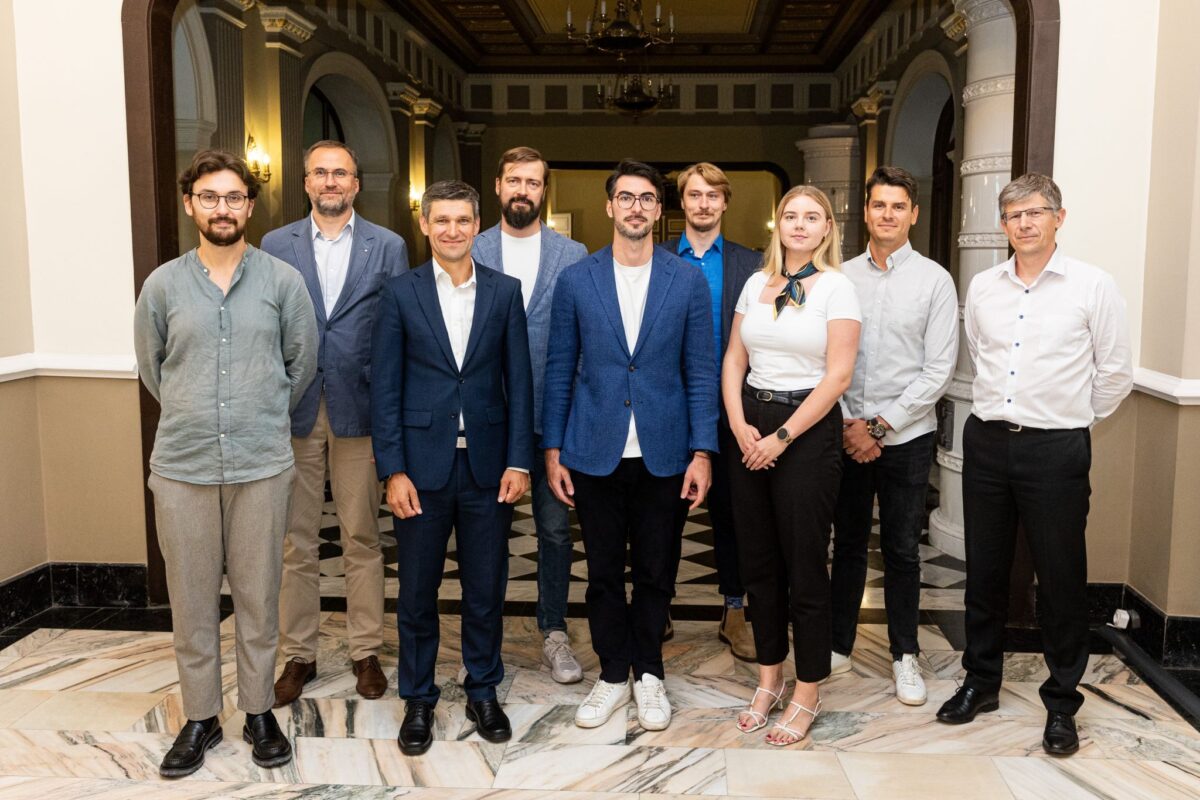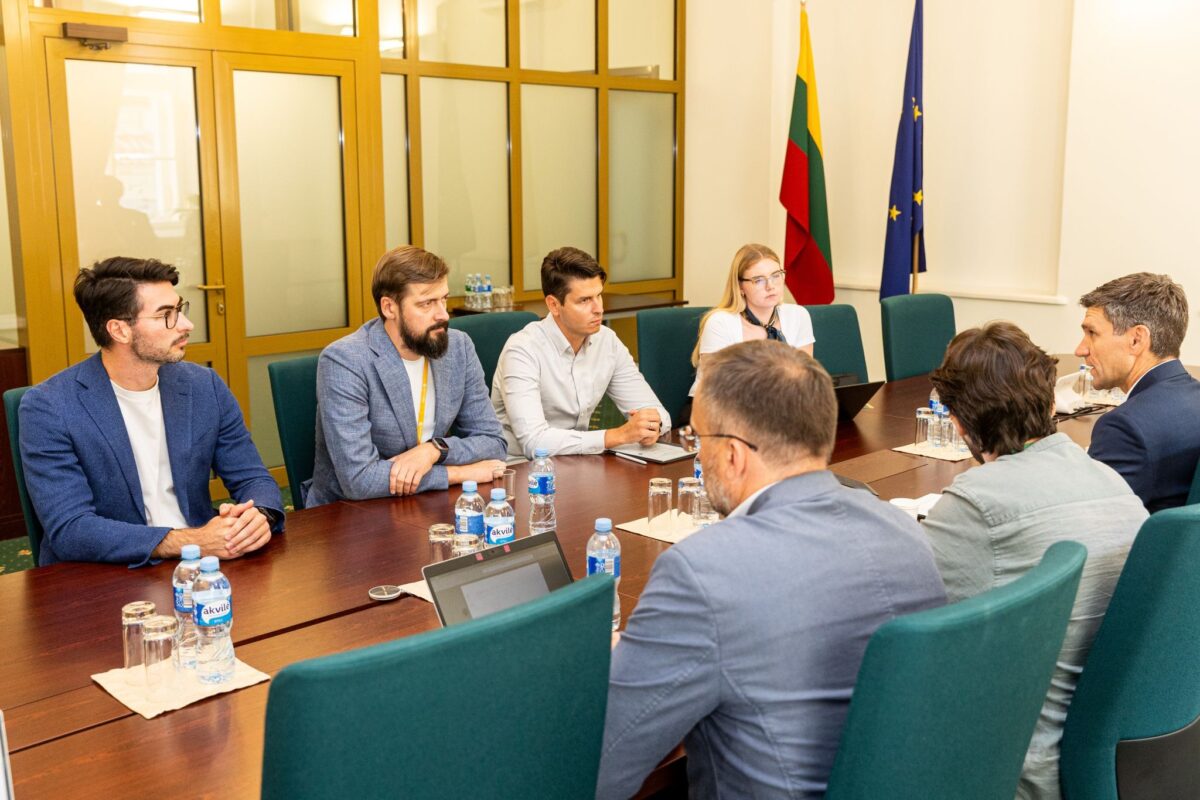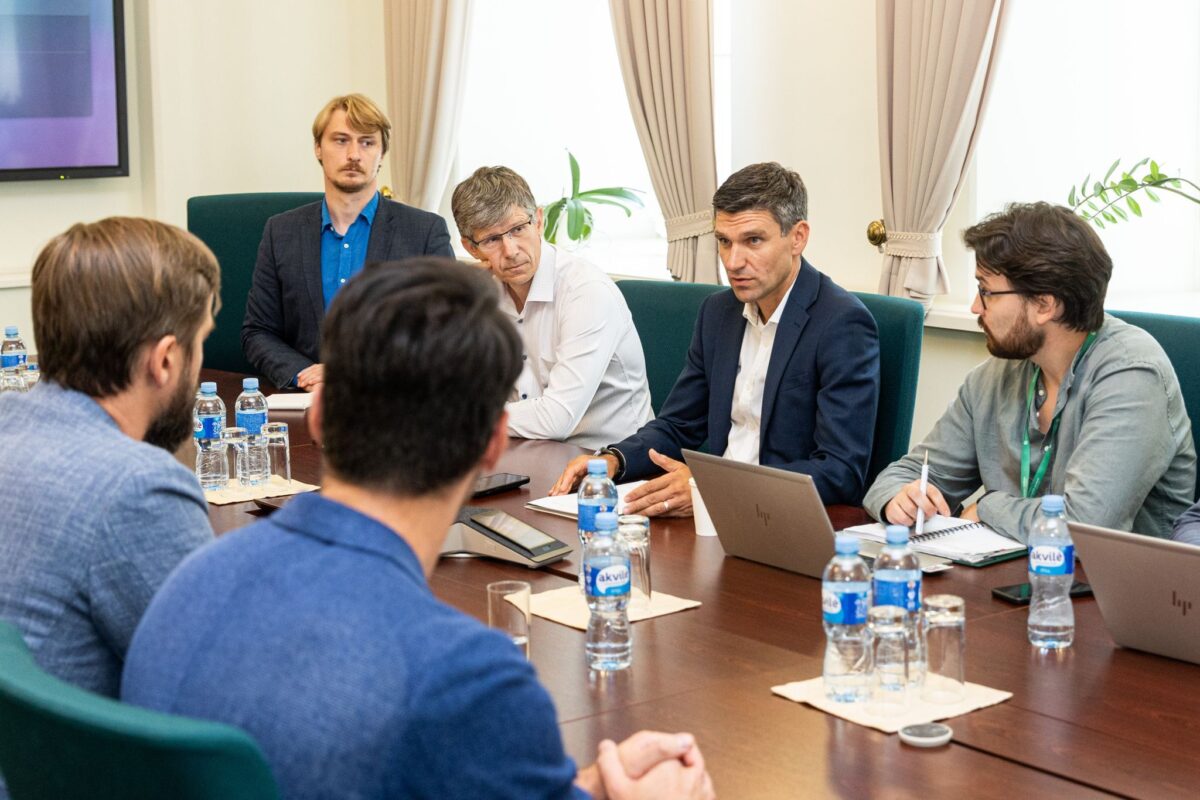
Representatives of the Bank of Lithuania have met with the newly elected members of Fintech Hub LT’s board and discussed relevant issues regarding market regulation and cooperation. During the meeting, representatives of the Bank of Lithuania and Fintech Hub LT agreed to ensure cooperation between market participants and the Bank of Lithuania in order to strengthen market resilience, facilitate its sustainable development, and foster innovation in the sector.
During the meeting, representatives of the Bank of Lithuania and the country’s financial market agreed that risk-based regulation, constructive cooperation between financial sector companies, associations, and regulators, sharing of good business practices, and public education would enable the implementation of the best European regulatory practices and boost the ecosystem’s sustainable development. The meeting was focused on electronic money and payment institutions, as well as the challenges faced by the latter. Representatives of the association were encouraged by the Bank of Lithuania to take advantage of the opportunity to join its Center of Excellence in Anti-Money Laundering, which will become available in March.
“We have agreed with the market participants that the Fintech sector must take further steps to promote its maturity. We would also like to congratulate the Fintech community’s express desire to address problems in a constructive manner and to strengthen mutual cooperation,” said Simonas Krėpšta, Member of the Board of the Bank of Lithuania.

“The partnership between Fintech Hub LT and the Bank of Lithuania is a major component of the Fintech sector’s long-term success. We are making a sustained effort to increase its maturity by joining the Bank of Lithuania in arranging quarterly meetings on issues related to compliance and anti-money laundering, initiating training projects, and preparing as well as sharing reviews of issues relevant to the sector. We are especially appreciative of our joint workshops that allow companies to inform the Bank of Lithuania of their insights and practices that facilitate the integration of best corporate risk management practices into draft legislation or recommendations without creating any undue bureaucratic red tape”, says Greta Ranonytė, Head of Fintech Hub LT.
The sector’s importance to the economy is growing
The importance of the financial technology sector to the Lithuanian economy is growing every year. According to the Bank of Lithuania, in 2023 the country’s Fintech companies had provided their payment services. During the period covered, the payment transaction amount increased by 12%, reaching It is estimated that there are 276 Fintech companies operating in Lithuania, and that the sector is currently employing 7,000+ people.
“Fintech companies with global reach have accumulated best long-term practices for making sure that market regulation helps not only to effectively protect the interests of clients, but also to ensure the sector’s international competitiveness and attractiveness to investors. Since the Lithuanian Fintech sector is already visible at global scale, advanced risk-based regulations and a concerted effort to implement a common vision would accelerate the maturity of the market and contribute to the creation of a more favourable environment for the sector’s growth and sustainable development,” said Daumantas Dvilinskas, Member of the Board of Fintech Hub LT, and co-founder and CEO of TransferGo.

During the meeting, representatives of the association also emphasised the importance of strengthening the reputation of Lithuania as a financial centre and expressed their desire to pursue a culture based on collaboration and mutual trust.
“The development of Lithuanian financial technologies is tied not only with a favourable regulatory environment and highly qualified talent, but also with a collaborative culture. An active dialogue between market participants and the Bank of Lithuania, as well as the definition and pursuit of common goals, are some of the key elements in promoting the sector’s maturity. A mature sector would boost the reputation of Lithuania as a financial centre at global scale and empower market players to provide high quality, competitive services to international clients,” emphasised Marius Galdikas, Member of the Board of Fintech Hub LT, and head of the financial technology firm ConnectPay.
During the meeting, representatives of the association conveyed their expectation of implementing risk-based regulations compliant with European best practices and conducive to promoting innovation in the sector.
“To ensure sustainable growth in the rapidly evolving financial technology sector, a culture based on collaboration is mandatory. The development of new innovative products and ensuring client security and competitiveness at the international level is only possible given the sharing and exchange of expertise, information, and ideas. Together, we can built a safe and sustainable financial ecosystem,” said Juozas Kaminskas, Member of the Board of Fintech Hub LT, and VP Banking & Issuing at the international Fintech company Nuvei.








